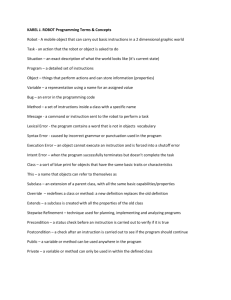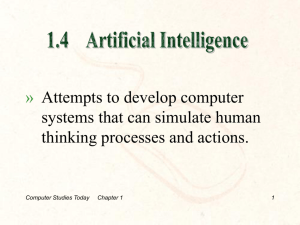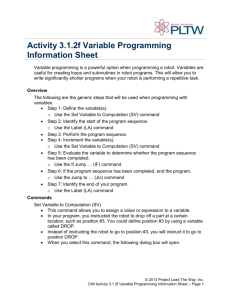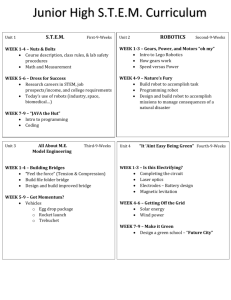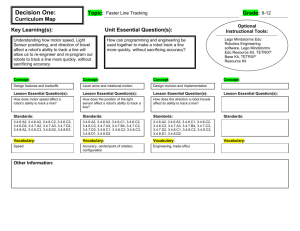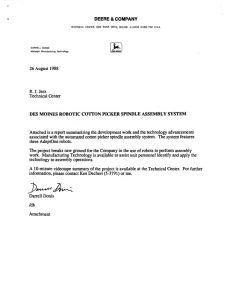PLTW end of course Assessment for IED 2014 Directions: This is a
advertisement
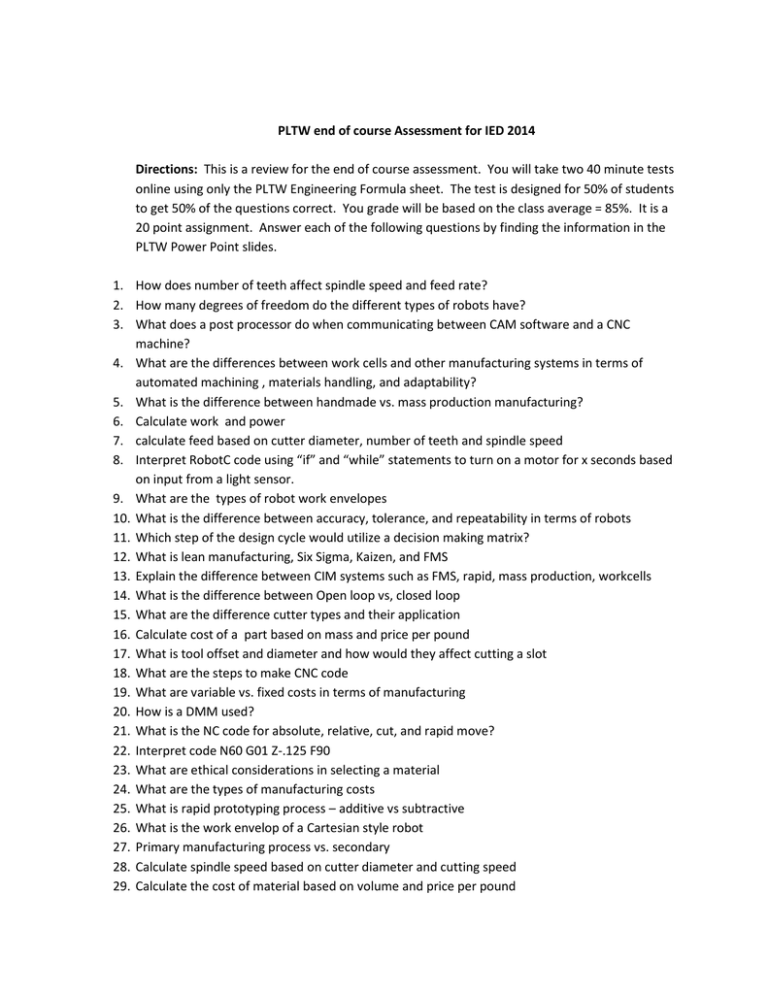
PLTW end of course Assessment for IED 2014 Directions: This is a review for the end of course assessment. You will take two 40 minute tests online using only the PLTW Engineering Formula sheet. The test is designed for 50% of students to get 50% of the questions correct. You grade will be based on the class average = 85%. It is a 20 point assignment. Answer each of the following questions by finding the information in the PLTW Power Point slides. 1. How does number of teeth affect spindle speed and feed rate? 2. How many degrees of freedom do the different types of robots have? 3. What does a post processor do when communicating between CAM software and a CNC machine? 4. What are the differences between work cells and other manufacturing systems in terms of automated machining , materials handling, and adaptability? 5. What is the difference between handmade vs. mass production manufacturing? 6. Calculate work and power 7. calculate feed based on cutter diameter, number of teeth and spindle speed 8. Interpret RobotC code using “if” and “while” statements to turn on a motor for x seconds based on input from a light sensor. 9. What are the types of robot work envelopes 10. What is the difference between accuracy, tolerance, and repeatability in terms of robots 11. Which step of the design cycle would utilize a decision making matrix? 12. What is lean manufacturing, Six Sigma, Kaizen, and FMS 13. Explain the difference between CIM systems such as FMS, rapid, mass production, workcells 14. What is the difference between Open loop vs, closed loop 15. What are the difference cutter types and their application 16. Calculate cost of a part based on mass and price per pound 17. What is tool offset and diameter and how would they affect cutting a slot 18. What are the steps to make CNC code 19. What are variable vs. fixed costs in terms of manufacturing 20. How is a DMM used? 21. What is the NC code for absolute, relative, cut, and rapid move? 22. Interpret code N60 G01 Z-.125 F90 23. What are ethical considerations in selecting a material 24. What are the types of manufacturing costs 25. What is rapid prototyping process – additive vs subtractive 26. What is the work envelop of a Cartesian style robot 27. Primary manufacturing process vs. secondary 28. Calculate spindle speed based on cutter diameter and cutting speed 29. Calculate the cost of material based on volume and price per pound 30. 31. 32. 33. 34. 35. 36. 37. 38. 39. 40. 41. 42. 43. 44. 45. 46. 47. 48. 49. 50. 51. 52. 53. 54. 55. How is a tolerance indicated? How do degrees of freedom affect a robot’s movement Define a control system in terms of CIM. List a few parts and materials that would be made with injection molding, extrusion, stamping, and hydroforming. List some fixed costs in manufacturing. List the types of machines that use a subtractive process. What are advantages of rapid prototyping? List the G codes for absolute and relative coordinates. What is the term for the amount of weight a robot can safely and accurately lift at the end of the arm where the end effector mounts? What are the differences between and incremental and absolute encoder on a robot? Define yaw, roll, and pitch angle on a robot. Calculate the area of a hydraulic cylinder that produces 50 psi when 25 pounds is applied. What is the primary philosophy of the Kaizen technique in the manufacturing process? Which type of system uses feedback from the input to control the output? (open vs. closed) Calculate the base roll angle with x value of 700 and y of -500 Read a dial caliper List three applications of a limit switch. What are M, T, and F codes used for in G&N coding? What is the difference between a workcell and a flexible manufacturing system (FMS)? List all of the types of rapid prototyping? Explain the difference between a jig and fixture? What types of manufacturing operations are best suited for robotic automation? What happens when two machines communicate with a “handshake” Calculate the area of a 2” diameter cylinder List the symbols and meanings in a process flow chart for a robot. What are the advantages and disadvantages when comparing pneumatic vs. hydraulic systems in terms of robotic automation?
